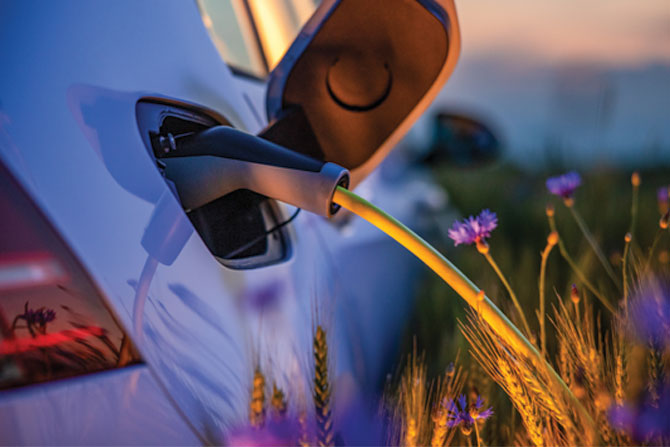Increasing awareness of environmental issues caused by vehicles is one of the primary factors driving the growth of the global zero-emission vehicle (ZEV) market. As a result, reducing carbon emissions from vehicles has been identified as one of the key strategies in limiting climate change.
Within the transportation sector, more than half of greenhouse gas emissions come from passenger cars, medium- and heavy-duty trucks, and light-duty trucks, including sport utility vehicles, pickup trucks, and minivans, according to estimates from the EPA’s Inventory of U.S. Greenhouse Gas Emissions 1990-2019.
Electric vehicles (EVs) are an excellent solution to these problems since they do not emit pollutants, and many use renewable energy sources, such as solar, to power up. This reduction in environmental pollutants leads to cleaner air and fewer health problems. EVs also contribute to savings on fuel and maintenance.
EVs have become increasingly appealing to environmentally-conscious consumers, with an increasing number factoring sustainability — specifically clean, electric, software-connected vehicles — into their buying decisions. This led to a jump of 43% (nationally) in EV sales in 2020. EV sales nearly more than doubled in New Jersey from 2020 to 2021.
Auto manufacturer-prioritization of ZEVs has seen rapid adoption from some of the largest automakers across the globe. In January 2021, General Motors announced it would sell only zero-emission vehicles by 2035. The bold pronouncement made major news in the U.S. and around the world. Since that time, the industry has seen a surprising number of manufacturers following suit.
- Carmakers worldwide will spend more than $268 billion through 2030 developing new electrified passenger vehicle models. Nine manufacturers have already announced plans to spend over $22 billion to open new or renovated plants in the U.S. to build EVs in five states.
- Between 2021 and 2023, the number of battery-electric (BEV) and plug-in hybrid (PHEV) passenger vehicle models available to U.S. consumers will increase from 64 to 82.
- Bloomberg estimates that at least two-thirds of global car sales will be electric by 2040.
Automakers committed to zero-emission lines collectively own a large percentage of the U.S. market. Their switch to EVs will significantly impact emissions and vehicle trends in the U.S.
EVs have become a priority for an increasing number of consumers and an even higher priority for automakers. Many car dealers are embracing the EV transition, and the excitement is warranted. Though there are unresolved questions about inventory management, sales and service training, and the impact on revenue generated through F&I and fixed operations, OEM commitment to producing EVs and demand by sustainability-conscious businesses and consumers alike gives dealers reason to embrace the evolution.
New Jersey Electric Vehicle Incentive Programs
New Jersey is leading the way on EV adoption on the East Coast, with a goal of registering 330,000 EVs in the State by 2025. This goal aims to reduce emissions from the transportation sector and help reach the goals of New Jersey’s Energy Master Plan and the Global Warming Response Act. For more information about New Jersey’s EV incentive programs, visit njcleanenergy.com/ev.
Dante Pileri is Vice President and General Manager in Zurich North America’s Direct Markets, East Division. He can be reached at 609.949.2100 or, via email, at dante.pileri@zurichna.com.










